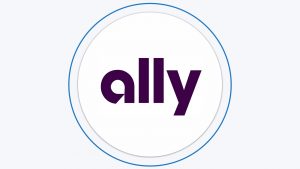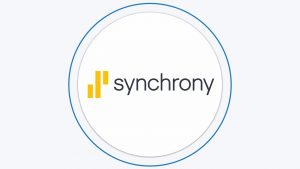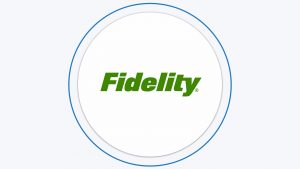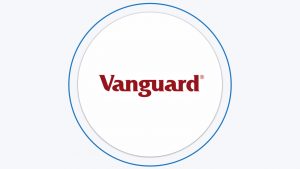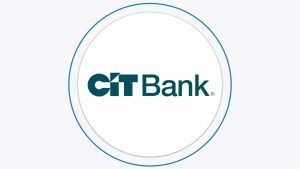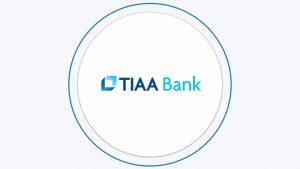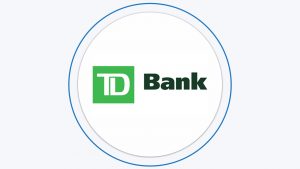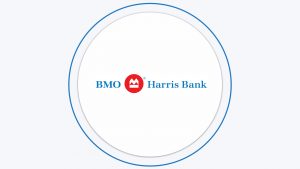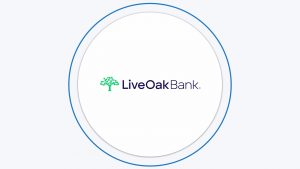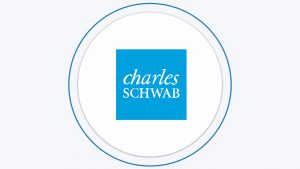Table Of Content

With the trying economic times we’re experiencing, many people are looking for ways to invest their money with minimal risk and decent returns.
While CDs are a popular choice, it is also worth considering U.S treasury bonds. So, here we’ll delve into the U.S treasury bonds vs CD debate in more detail to help you decide which one is best for you.
How Treasury Bonds Work
When you purchase a US treasury bond, you are lending the government the agreed sum of money for a set period of time. The level of interest is set and you’ll receive regular interest payments, which is referred to as coupon.
The specific coupon dates when you will receive an interest payment is documented in the terms of the particular bond. The typical coupon dates are monthly, quarterly, semi-annually or annually.
The coupon rate or the amount of payment is expressed as a percentage of your principal bond amount. For example, if your bond principal is $1,000 and it has an annual $50 coupon, the rate is 5%.
After the bond expires and it reaches its maturity date, your principal investment is returned to you. There are different bonds with different maturity dates, so you can buy a bond with a one-year maturity date or with terms as long as 30 years. The 10-year treasury bond is the most common bond issued by the US government.
The Pros And Cons Of Treasury Bonds
Pros | Cons |
|---|---|
High Trust | Low Yields |
Tax Benefits | Call Risk |
Liquidity Potential | Default Risk |
Longer Terms | Penalties |
- High Trust
No private company is likely to ever beat the U.S treasury for its creditworthiness.
This means that treasury bonds are considered to have the highest quality credit among any products in the U.S market.
- Tax Benefits
If you derive income from treasury bonds, you can also enjoy some tax benefits. Any interest income from these bonds is not subject to state and local income taxes.
However, you will need to pay federal income taxes. Bear in mind that if you sell your bond or, at maturity, redeem it, some elements may become taxable.
- Liquidity Potential
Although treasury bonds have a set term, there is a secondary market that allows you to buy and sell them.
This means that if you need access to your funds, it may be possible to liquidate your assets.
- Longer Terms
- Low Yields
While treasury bonds are considered a safe investment, they do typically have low yields, particularly considering the long terms.
If you hold your bond until maturity, you can expect a fairly low return, but if you sell on the secondary market, your returns may be even lower.
- Call Risk
Some treasury bonds have a call provision which allows the government to retire them early before the stated maturity date. This typically occurs when rates are falling.
- Default Risk
While the U.S Government is considered to be the strongest in the world, there is still a risk of default if it is unable to pay the interest or the principal investment on time.
Serious investors may start to feel concerned if the rate of the U.S dollar starts to fall and there are national debt issues which could indicate an imminent default risk.
- Penalties
If you want to redeem your bond before its maturity date, there could be some penalties or restrictions.
How CDs Work
CDs are essentially like a form of fixed-term savings account. You can open one with most banks and credit unions. You can choose a term from few months to 10 years, but most financial institutions do have a minimum deposit amount.
You won’t receive any income from the CD, but at maturity, you’ll receive your initial deposit plus interest calculated at the agreed rate.
Although there are some CDs that offer early redemption, most carry an interest penalty if you want to withdraw your funds before the maturity date. There is no need to involve a secondary market, as the bank or credit union will simply release your funds less any interest penalty.
These penalties are typically tiered according to the remaining term. This means that the longer that you hold the CD, the less of an interest penalty you’ll incur for early redemption.
CDs Pros And Cons
Pros | Cons |
|---|---|
Flexible Terms | Early Withdrawal Penalties |
Accessible | Not Inflation Proof |
FDIC Protection |
- Flexible Terms
While they may not have the option of terms as long as you have with treasury bonds, CDs do offer shorter terms. There are CD products on the market with one, three or six-month terms.
This provides an opportunity for CD laddering, so you can access the higher rates of longer-term CDs without compromising on liquidity.
- Accessible
You don’t need to use a broker to access CDs, as you can typically find CDs with your bank or local credit union.
This makes it easier to open a CD account and transfer funds from your checking or savings account.
- FDIC Protection
CDs carry FDIC protection for up to $250,000. This means that you have the reassurance that you can recoup your principal deposit in the event that the financial institution should fail.
- Early Withdrawal Penalties
Unless you choose a CD that specifically allows early redemption, you’ll incur an interest penalty if you withdraw your funds before your CD maturity date.
In some cases, you could lose all of the interest that your CD has accrued.
- Not Inflation Proof
While no investment product is immune to the effects of inflation, long term CDs are particularly vulnerable.
In times of higher inflation, you may want to limit yourself to shorter term CDs, which means that you may miss out on higher interest rates.
What's the Difference Between CDs and Treasury Bonds
CDs are available from a variety of financial institutions including banks and credit unions. Essentially, they function almost like a savings account, but you often receive a higher rate of interest as compensation for tying up the money for a set period. This period can vary from months up to 10 years. Typically, the longer the holding period, the higher the interest rate.
CDs are considered a safe investment, as they typically have FDIC coverage for up to $250,000. This means that should the bank fail, you will be able to recoup your principal up to the maximum limit.
On the surface, treasury t bonds appear very similar to CDs. Essentially, you’re loaning money to the treasury for a set period for a specified interest rate. The treasury issues bonds to raise funds, but they are considered safe, as your funds will only be at risk in the unlikely event that the treasury collapses.
Interest Rates & Inflation Effects
The key difference between CDs and government bonds is the interest and inflation effects.
For example, if you invest $10,000 in a CD for five years and inflation increases over the five years, it means that the buying power of your $10,000 will not be what it was when you made the deposit. While banks may offer higher rates on their CDs, once you deposit in a CD, the rate is set. So, if you lock your money into a long-term CD when rates are low, you’ll be stuck with that rate for the lifetime of the CD.
On the other hand, the price of bonds decreases as interest rates rise. This means that bonds lose market value when interest rates rise. Although you’ll still receive the agreed interest rate, if you want to sell the bond on a secondary market, it will command a lower price as other bonds will be available paying a higher rate.
CDs vs Treasury Bonds: Key Things to Consider
- Market Trading: While treasury bonds can be traded, CDs don’t have this facility. This means that you can choose to hold your government bond until maturity, or you can use the secondary market to sell it at any point. However, there is an inverse interest rate relationship, so when rates go up, the prices of bonds go down.
- Federal Insurance: As we have touched on earlier, CDs have FDIC coverage, which provides up to $250,000 of financial protection per account holder. Even if you use a credit union CD, you can also enjoy a similar level of federal insurance through the National Credit Union Share Insurance Fund. However, unlike standard bonds, treasury bonds also carry FDIC insurance, which means that you can enjoy a very low level of risk.
- Tax Advantages: The income from CDs is generally taxable as normal income, while treasury bonds often have tax advantages. In most cases, you’ll only be required to pay the federal taxes on your interest payments. If you live in a high income tax state or are in a higher tax bracket, this could represent significant savings.
- Maturity Dates: Most government bonds have a long term of 10 years plus, while CDs typically offer far shorter terms. If you are concerned about inflation and mitigating the inflation risk on the buying power of your funds, you may prefer to have a CD with a term of less than five years, but if you want to hold your retirement funds in a safe environment with no concerns of inflation busting returns, a government bond may be preferable.
When It Makes Sense to Choose a CD
CDs are highly flexible financial products with terms of 3 months or less up to 10 years. So, if you want somewhere safe to stash some cash for a short amount of time, it makes sense to choose a CD.
If you have some funds that you don’t want to tie up almost indefinitely, you could opt for a three-month CD and then consider your options later.
Another scenario when it makes sense to choose a CD is if you want to try different investing techniques such as CD laddering. This involves having multiple CDs that mature at different times, so you’ll always have access to funds when you need them.
For example, you could have a CD maturing every month or every year, depending on how you set up the ladder. This provides the opportunity to use the funds at maturity or reinvest them into another CD. Here's a cd ladder example.
When It Makes Sense to Choose A Treasury Bond
If you want to minimize your tax burden, treasury bonds could provide a better option over CDs.
Since you won’t be liable for state and local taxes on your interest payments, you could pay far less on the proceeds of your investment. CDs are fully taxable assets, which means that you’ll need to carefully assess your after-tax returns.
Another scenario where a treasury bond makes more sense is if you have long-term investment horizons. Government bonds typically have a maturity date of up to 30 years, which provides an excellent “set and forget” option for long term investors.
If you simply want a secure place to put retirement funds and don’t want to risk all of your fund on the stock market, you could put a percentage into treasury bonds. While this won’t offer the same yields as your stock portfolio, it will not suffer the same volatility.
How Inflation Impacts CDs and Treasury Bonds
Protecting your savings from inflation is a popular topic in recent months.
As we discussed earlier, no financial product is immune to the effects of inflation, but inflation impacts CDs and treasury bonds in different ways.
Higher inflation reduces the buying power of your CD on maturity. You are locked into an interest rate until maturity when you open a CD. This means that if inflation is outpacing the interest rate on your CD, when it matures, your funds will have less buying power.
So, when inflation is on the rise, you need to look carefully at the maturity dates and rates on offer before you open a CD to minimize the impact.
Interest Rates Hike Affect Bonds & CDs Value
On the other hand, inflation and interest rates affect the value of bonds. There is a relationship between interest rates and bond values. As the FED adjusts interest rates to address inflation, the value of bonds on the secondary market is impacted.
So, when interest rates go up, the value of bonds goes down. This means that in times of high inflation when the interest rates increase if you want to cash out your bond via the secondary market, you won’t be able to achieve the best price.
FAQs
How savings accounts differ from US government bonds?
Unlike a savings account which you can open at practically any bank or credit union, U.S government bonds can only be electronically bought and redeemed via the U.S Treasury website.
How do savings accounts differ from CDs?
CDs are often considered a form of savings account, but they have a fixed term and fixed interest rate.
Unlike most savings accounts, if you withdraw your funds early, you’ll incur an interest penalty.
Should I Keep My Emergency Fund in a CD or Bond?
If you never know when you may need access to your funds, you may prefer the reassurance of a short term CD.
While you can liquidate your bond on the secondary market, if interest rates are high, the value of your bond on the secondary market will drop
Are CD rates higher than savings account?
Yes, CD rates are usually higher than a savings account, since you lock your money for a longer time.





